Notes from the Bughouse
Or, that time a fascist collaborator held a poetry salon on the lawn of a mental hospital
Ezra Pound was, among darker and uglier things, a loyal friend: a tireless editor and supporter of the modernists in the wake of WWI. He chiseled T.S. Eliot’s The Waste Land down to its spare best, helped launch James Joyce’s A Portrait of the Artist as a Young Man, and convinced a young Hilda Doolittle (with whom Pound was in love) to publish her poems under the initials H.D.
In influence, Pound was one of the great 20th-century shaker-uppers of form and style. Make It New! he famously exhorted his fellow poets. And they did, each in their own way. Without him, modern poetry would have developed very differently.
According to some descriptions, he had a kind of pushy ebullience. Yet however often he annoyed his fellow expats—Gertrude Stein described him as “a village explainer, excellent if you were a village, but if you were not, not”—they honored him as one of their own.
So I can understand why some of his friends stood by him after he came unhinged and broadcast long, anti-Semitic radio rants in paid collaboration with Mussolini’s Fascist government. I get why ostensibly sane, decent people helped save his life when he got arrested for treason in 1943.
Ernest Hemingway made the case bluntly in a letter to Archibald MacLeish:
He should not be hanged and he should not be made a martyr of…. It is impossible to believe that anyone in his right mind could utter the vile, absolutely idiotic drivel he has broadcast. His friends who knew him and who watched the warpeing [sic] and twisting and decay of his mind and his judgement should defend him and explain him on that basis. It will be a completely unpopular but an absolutely necessary thing to do.
But poets go crazy all the time, and most do not become mouthpieces of mass murder. Nor do they get their passports canceled for treason, at least not in functioning democracies.
So what happened, and why does it still matter?
From Idaho to Il Duce
Pound was born in Hailey, Idaho, in 1885, the descendant of Quakers and Puritans, two groups of early Americans that clashed fiercely. For the Puritans, the Quakers’ belief in their own religious freedom and the equality of women were considered killing offenses.
I would carry fire in one hand and faggots in the other to burn all the Quakers in the world. —Boston preacher John Norton
With his Puritan ancestors thundering in his veins—or not—Pound would grow up to urge the mass murder of a different group of people.
I stared at this bespectacled little face for a long time, imagining I could see the same arrogant stare that characterizes Pound’s adult photos. But he was just a kid. Was someone yelling at him to hold still? Why did they have him hold his leg up stiffly on the chair arm, as if marching in place at his mother’s knee?
Pound’s academic career was undistinguished except by his ability to rankle. He started college at 15 to escape military academy, but his grades in English and almost everything else were poor to mediocre. Although he made it to grad school, he eventually got kicked out for his persistent obnoxiousness. One professor recalled that Pound would sit in class and slowly wind a giant tin watch through the whole lecture.
Pound taught briefly at a Presbyterian college in Indiana that he hated. To one student, his teaching was a breath of fresh air; however, another described him as "exhibitionist, egotistic, self-centered and self-indulgent."
Finally, Pound left the U.S. to join other American writers abroad. He made his way to London, Paris, and then Italy. There are plenty of excellent biographies that focus on his expat years and their literary impact. Suffice to say that he discovered, shaped, and promoted many poetic works that would loom large in the literary canon. According to Hemingway, for a poet not to feel Pound’s influence in the early 20th century would be "like passing through a great blizzard and not feeling its cold."
In the wake of WWI, that stiff little boy, that obnoxious grad student and tireless poem-shaper, embraced the conspiracy theories that underlay fascism. He moved to Italy in 1924, two years after Mussolini and his Fascist party rose to power. In 1933, Pound, who needed a job, met Mussolini and handed him a draft copy of his Cantos, “an endless poem…about everything.” Il Duce remarked, “How entertaining.”
"Europe calling! Pound speaking!"
Destructive movements always depend on ordinary people’s vulnerability to propaganda—their willingness to associate a big, soaring emotion with a Big Lie. Such lies were essential tools of the Axis powers, and they drove more than one genocide in Europe and North Africa. Libya under Italian occupation had concentration camps, too.
In the late 1930s, Pound got the Italian government to start paying him to do short-wave radio broadcasts aimed at an American audience. The initial goals were to drum up sympathy for Fascism and keep the U.S. out of the war.
In his “Europe calling! Pound speaking! Ezra Pound speaking!” broadcasts, Pound droned on in a voice that one listener compared to “a hornet stuck in a jar.” Along with championing his new patron’s violent ideology, he used his radio platform to blame Jewish people (“bloodthirsty kikes”) for the world’s worst ills.
I tried to read the radio scripts, but Hemingway told it true: they are the ravings of a lunatic. It’s as if Pound were connecting dots in a pointillist Rorschach and then exclaiming, “There! You see? What did I tell you?”
Yet his speeches have disturbing echoes of today’s white nationalist grievance narratives. They’re full of dark hints and angry allegations, outrage and scaremongering, along with a smug certainty of … something.
Like other rabble rousers before and since, Pound targeted a feeling of “being wronged” in the ordinary, powerless person’s heart. He poked repeatedly at that sore spot and offered a shadowy, ubiquitous scapegoat.
Here’s a sample from one of his disjointed but oddly folksy rants:
America was killed by the kid-glove generation, looked simple. Henry James describes these innocuous flops: on the beach at Newport, none of 'em meant any harm, after the Civil War the American people was tired. I'll say they were tired. With reason. Killed each other off to make room for the vermin.
By “vermin,” Pound apparently meant all the non-Anglo immigrants the U.S. invited in to build the railroads and do other hard, necessary work that intellectual snowflakes like himself wouldn’t dream of putting their backs to. For the record, I’m 4th-generation vermin.
All the Fallacies Rolled into One
According to the Nazis and Italian Fascists, Jewish people were a sinister scourge with hooky noses, poor hygiene, and an insatiable lust for world domination through banking. Good Aryans had a moral duty to exterminate them.
Pound gave a definitive “thumbs up” when Hitler started mass arrests of Jewish people. To head off the backlash, Pound recommended that bookstores feature The Protocols of the Elders of Zion, a fake tract in which Jews supposedly explain in great detail (ah, the fallacy of the talking villain!) their plot to take over the world. He wrote:
The arrest of Jews will create a wave of useless mercy; thus the need to disseminate the Protocols.
Useless mercy. Hemingway’s simile of icy cold was clearly not random. Yet these horrific rants were not what got Pound arrested.
It wasn’t illegal in the United States to call for genocide. In fact, Nazi lawyers drew inspiration from the United States’ systematic genocide of Indigenous Americans in the late 1800s and the country’s ongoing segregation of African Americans. Moreover, the pseudoscience of eugenics got its start in the U.S. before it became a pillar of the Nazi platform. And in 1939, two years before the U.S. entered the war, 20,000 American Nazis and their sympathizers Hitler-saluted a banner of George Washington at Madison Square Garden. The rally was billed as a “mass demonstration for true Americanism.”
The politicians who want to erase such episodes from history books aren’t doing the next generation any favors. How many Americans spout or tacitly accept views similar to Pound’s because they’re two or more generations removed from the consequences?
But again, Pound wasn’t arrested for cheering on genocide. His treason consisted of giving “aid and comfort” to Hitler and Mussolini after the U.S. was officially at war with Germany and Italy.
Poet in a Cage
In the summer of 1943, the U.S. army wasn’t in a mood to coddle a poet who’d collaborated with Mussolini over the Italian airwaves. No, commit treason during a World War and you got to sit in a cage like Kafka’s hunger artist.
After Italy surrendered, Pound was imprisoned in an American military camp near Pisa. For two weeks, the army held him in an open-air steel cage. Then they brought him back to the U.S. for trial.
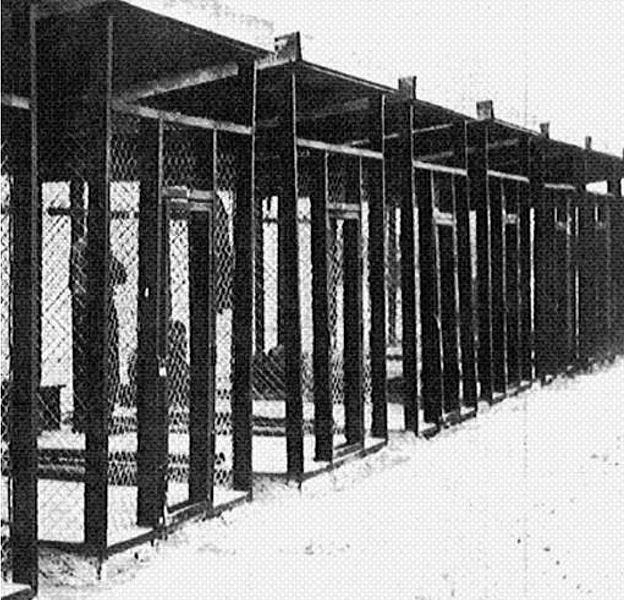
Are the Voices in My Head Bothering You?
During Pound’s trial, his lawyer convinced him to plead insanity. Ironically, the lawyer presented excerpts from Pound’s masterwork, The Cantos, as evidence of his mental deterioration. Hemingway had made the suggestion to do so. Court-appointed psychiatrists found Pound "abnormally grandiose ... expansive and exuberant in manner, exhibiting pressure of speech, discursiveness and distractibility." He barely escaped a diagnosis of psychopathy, which would have negated the insanity plea because psychopaths know what they’re doing.
Instead of getting put in front of a firing squad, Pound ended up at St. Elizabeths in D.C., one of the U.S.’s oldest mental hospitals. At the time, the place was known for its pioneering use and abuse of psychotropic drugs and electroshock therapy. Pound called it “the bughouse.”
Four years later, restrictions on him had loosened to the point that the mad poet was presiding over literary salons on the lawn of the asylum.
T. S. Eliot, Elizabeth Bishop, and W.S. Merwin attended those lawn salons. Unsettlingly, Merwin was still a college kid when he made his first pilgrimage to St. Elizabeths to seek Pound’s mentorship.
If Pound was crazy, weren’t his literary critiques “a tale told by an idiot…signifying nothing"? The brand-spanking-new drugs may have muted the sound and fury, but why was this man still anyone’s mentor? On the other hand, if he was a lucid psychopath, those writers were paying homage to a monster.
But I guess they thought: The war is over, and the Allies have won. Why not talk poetry at the bughouse with dear old Ezra? Clever discussion is such a pleasant way to pass the time.
Pound got released from St. Elizabeths in May of 1958. He immediately left for Italy, where he declared, “All America is an insane asylum.” He welcomed friendly gestures from white supremacists.
Incredibly, he was still alive in my lifetime: he died in Venice in 1972.
Connecting the Dots
My Libyan writer friend Khalifa lives in Rome. When I read that Pound still has followers there, I mentioned it in an email. He replied:
Yes, they are famous here, they call themselves CasaPound! I had never connected the dots….One of the things I have to always be attentive to is not to walk alone in areas where the neo-fascist movement has an active appearance. They have an occupation here in Rome, also a few areas where they are known to gather; they are like wolves, attack in packs. They still celebrate the birthday of Mussolini with parades, and they still do the Nazi salute…this is why also I always examine people’s tattoos, their dress code, and their haircuts, as well as the graffiti on the walls.
CasaPound also call themselves “Ezra’s Boys.” The name has a chilling resonance after the January 6 insurrection in the U.S. From Ezra’s Boys to Proud Boys, it strikes me that what men with fascist tattoos and tire irons really want is not to grow up. They want power without reason or responsibility. Like the 20th-century Fascists, they justify monstrous acts with a sense of outraged victimhood. In that, Pound was their kindred spirit, and whether they feel his icy stare or not, he remains their patron saint.
I wrote that conclusion before Trump pardoned the Jan. 6 insurrectionists without exception.




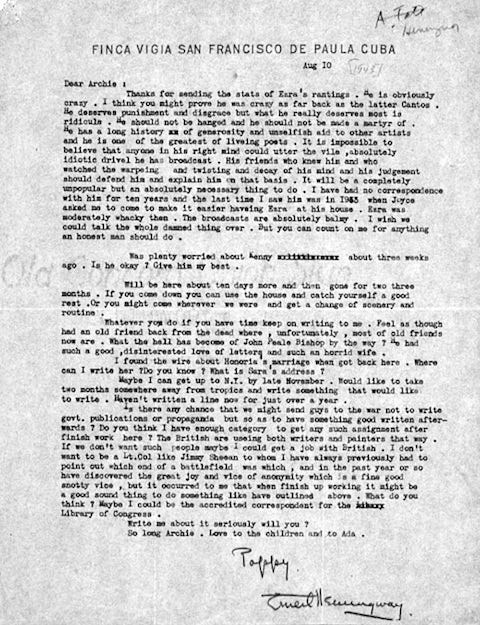
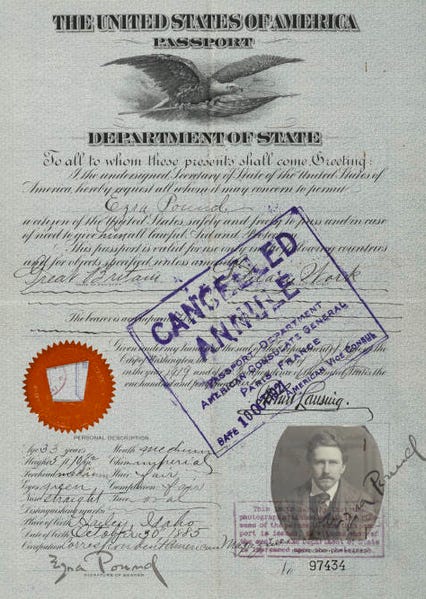
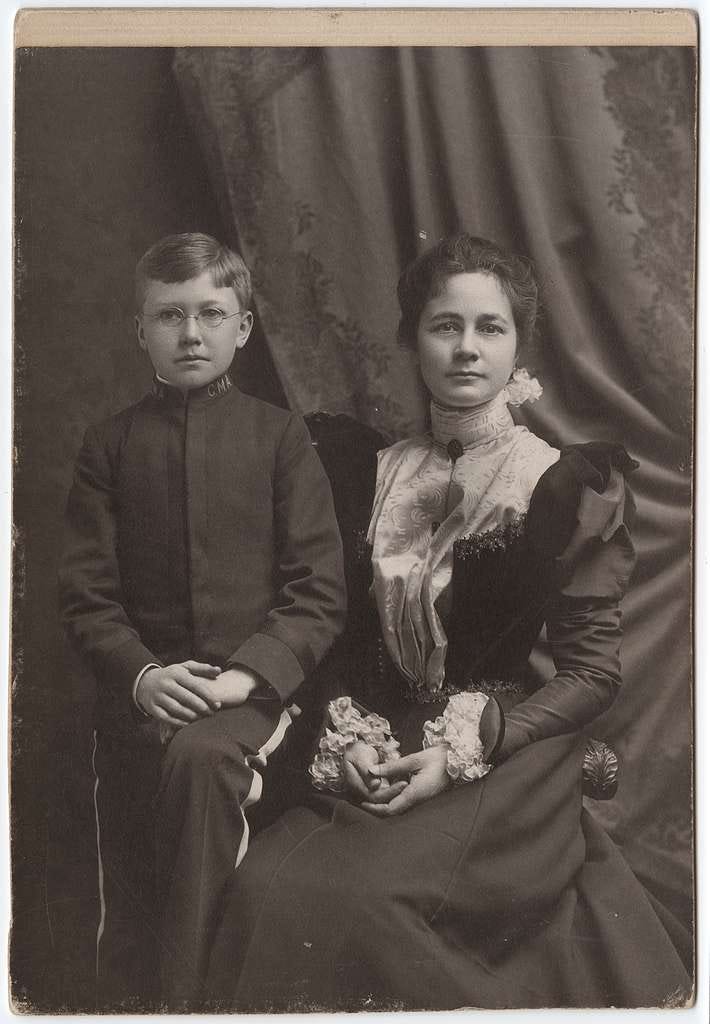
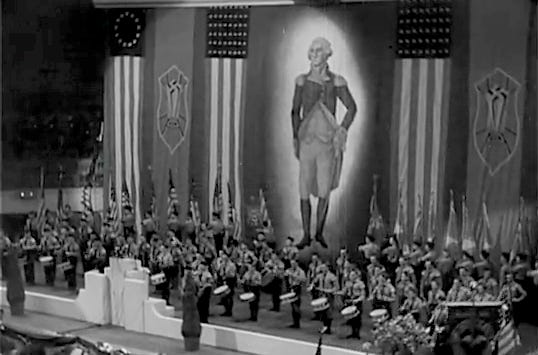
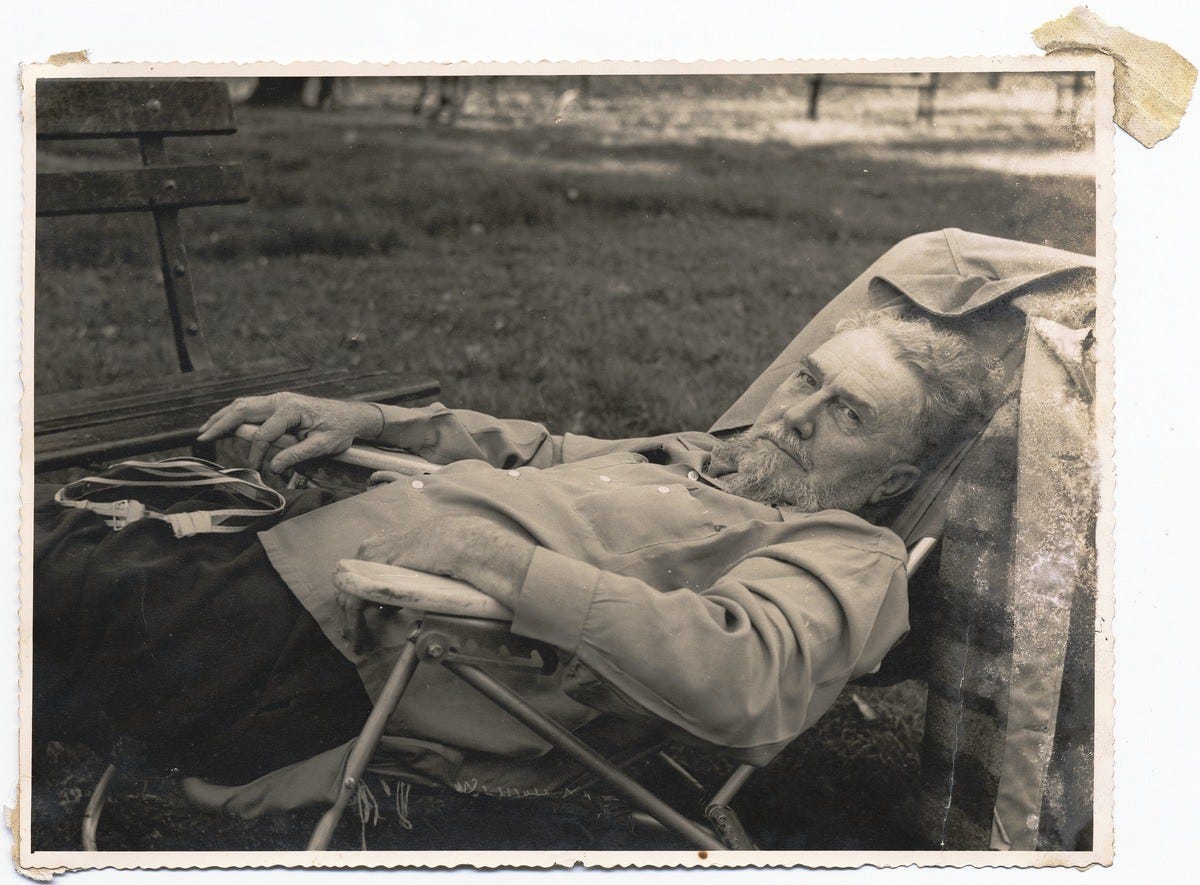
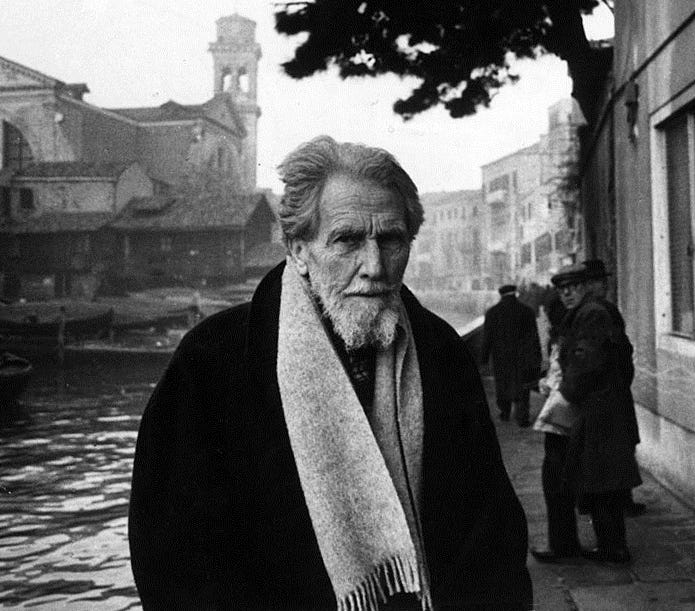
"They want power without reason or responsibility." Reeling from the clarity--Truth--of that statement.
As with this one: "Destructive movements always depend on ordinary people’s vulnerability to propaganda—their willingness to associate a big, soaring emotion with a Big Lie."
We really need to support ourselves and each other with understanding our big soaring emotions!
freedom of speech will always mean leaving space for hateful, divisive speech. That in turn demands endless vigilance for the potential that purveyors of hate will gain traction within sectors of the public. It falls to the rest of us to rebuke them, refute their insane "theories" in perpetuity, whenever and where ever they gain a foothold. It will never stop.